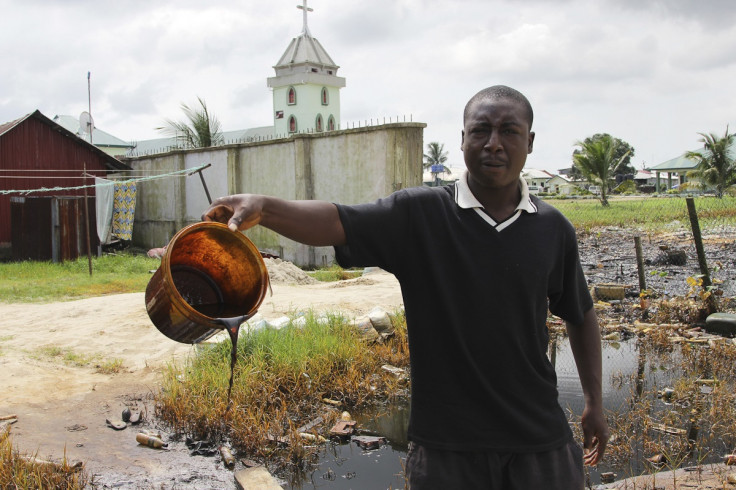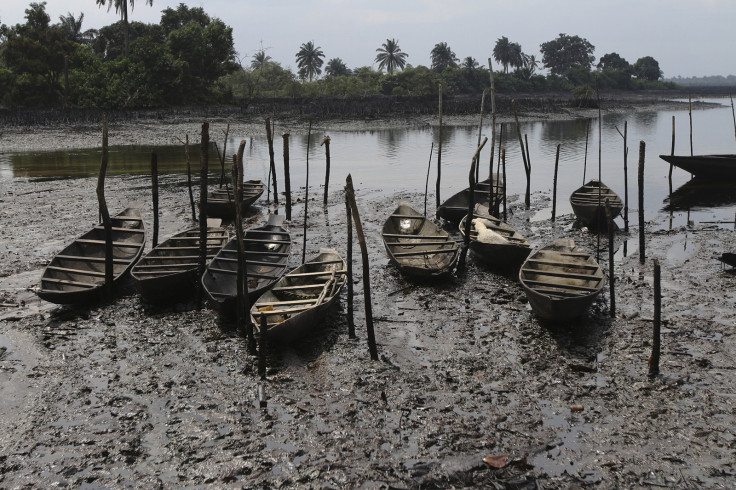Shell oil spill: Nigeria's Ogoniland clean up could take 30 years to restore ecosystem, says UN

The decision of Nigerian President Muhammadu Buhari to cancel a visit to Ogoniland, in the oil-rich Niger Delta, has overshadowed the launch of a much-awaited clean-up operation of territories damaged by years of oil spills. Buhari was supposed to travel to south-eastern Nigeria to announce the launch of the operation.
The leader was also scheduled to meet regional leaders for discussions on ways to tackle renewed violence in the area but talks have beeb marred by attacks on oil pipelines which have partly halted production.
No official reason was given for the cancellation, which was announced one day after IBTimes UK exclusively reported that a man suspected of belonging to the Niger Delta Avengers (NDA) militant group warned Buhari's life was in danger if he visited the Niger delta.
Following the cancellation, Vice President Yemi Osinbajo travelled to the restive southern region to launch the $1bn (£691m) clean-up operation. A 2011 report by the United Nations Environment Programme (UNEP) found that oil spills contaminated clean water and damaged the fishing industry – stating immediate action was needed.
Our little ones need us to lead by example. We owe them a clean & safe environment to grow up in. #KeepNigeriaClean pic.twitter.com/bPzCfYCwBs
— Amina J Mohammed (@AminaJMohammed) May 28, 2016
The operation – which the report said could be the "most wide-ranging and long term oil clean-up exercise " – aims to restore drinking water, land, creeks and important ecosystems such as mangroves. The UN report estimated that the clean up of Ogoniland could take up to 30 years.

Oil spills in Ogoniland
Royal Dutch Shell and British Petroleum started oil operations in the area in 1958, after oil was first discovered in Nigeria in 1956. They were later joined by several other companies.
It has been estimated that at least 7,000 oil spills occurred in Ogoniland and the rest of the Niger Delta between 1970 and 2000. The damages of oil spills on the environment and communities led to the creation of the Survival of the Ogoni People (Mosop) movement, led by Ken Saro-Wiwa. The leader was later arrested and executed amid widespread condemnation.
Militant groups in the oil-rich Niger Delta region took hold in the early 2000s, following the deterioration of people's living conditions blamed on the increase of oil-related activities by foreign exploration corporations. Tensions flared in the local communities as some ethnic groups felt they were being exploited and did not benefit from the crude oil on their land.
Two major spills occurred in the Bodo community in 2008, destroying thousands of acres of mangroves and fishing populations. In 2015, Shell reached a $84m (£55m) settlement with the Bodo fishing community affected by the spills.
In November 2015, a joint report by Amnesty International and the Centre for Environment, Human Rights and Development accused Shell of failing to implement the 2011 UN recommendations.
In March 2016, two Nigerian communities sued Shell in London over multiple oil spills in the Niger Delta.
Nigeria up close: Check out our Flipboard magazine
© Copyright IBTimes 2025. All rights reserved.






















